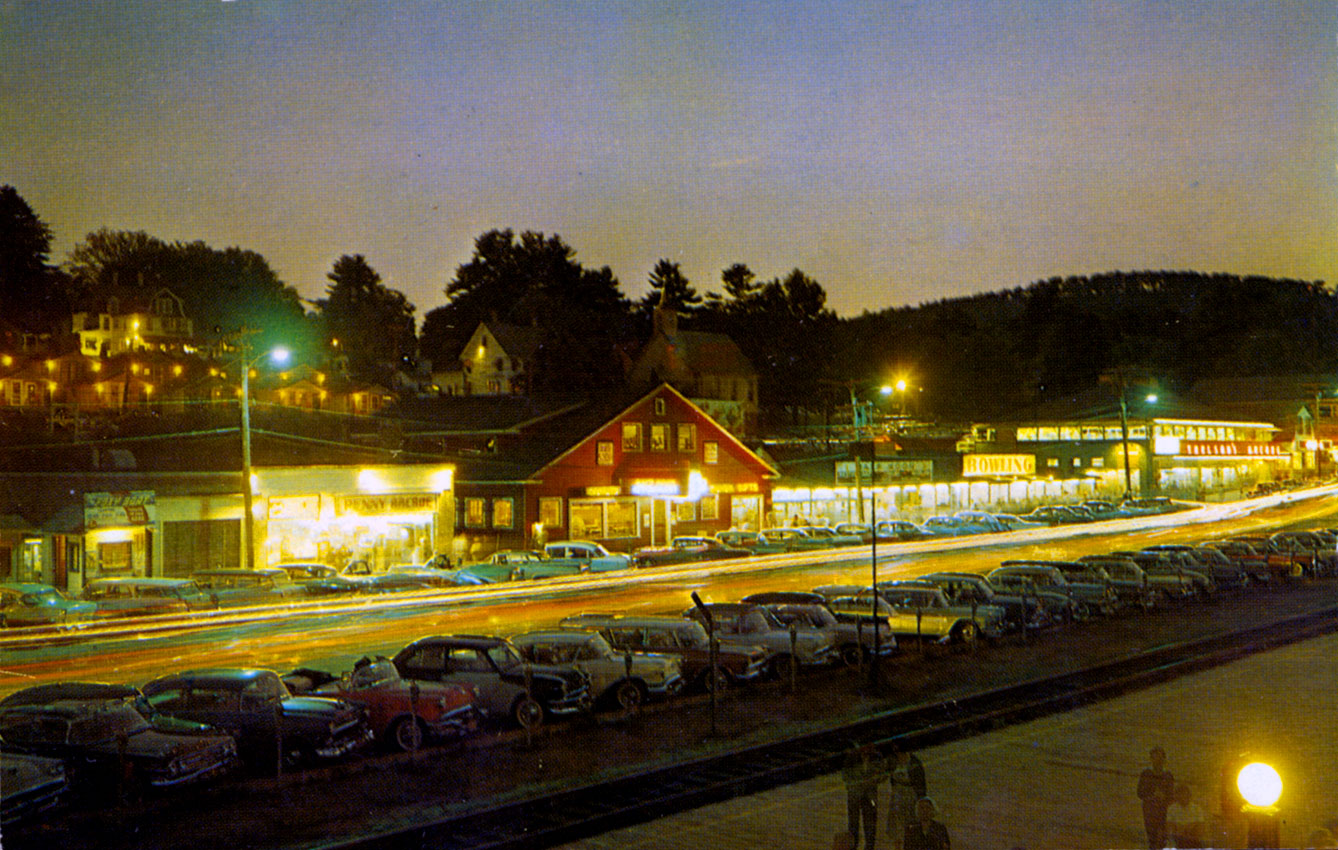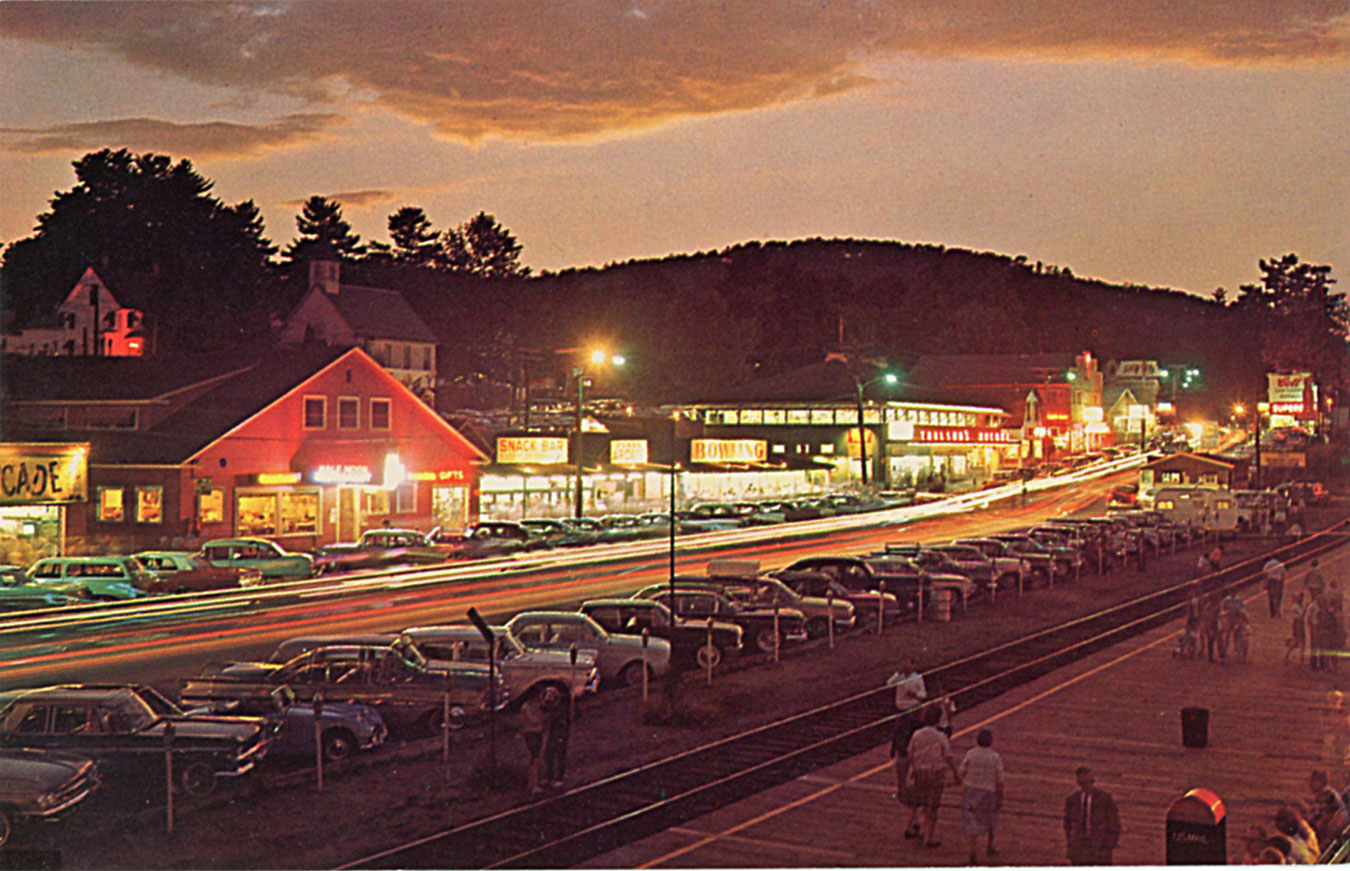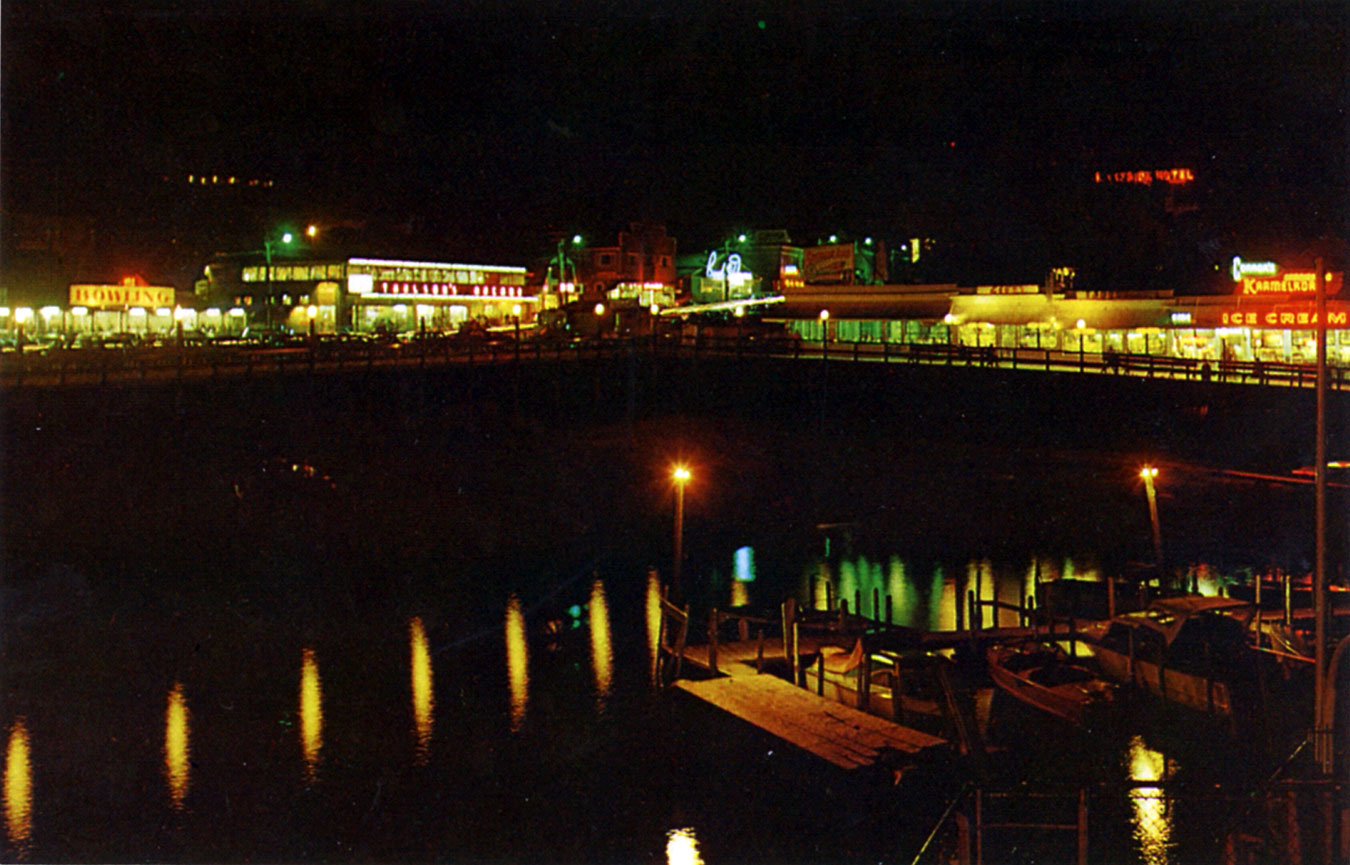Prohibition in Weirs Beach
In contrast to today’s thriving nightlife scene, over a century ago, Weirs Beach was a “dry” town, no doubt due to the influence of the Methodists, who had their annual camp-meetings here. Prohibition formally began in Laconia in 1904, 16 years before the national ban on alcohol consumption. However, when the national ban ended late in 1933, Laconia was more than ready to imbibe again, and a state liquor store opened downtown in 1934 at the corner of Beacon and Canal streets.
Here is an interesting excerpt from an August 31, 1885, Nashua Telegraph newspaper article, covering that year’s reunion in Weirs Beach of NH civil war veterans: “The crowds that arrive on every train seem very orderly. There is little rowdyism, little drunkeness. This happy state of affairs is perhaps somewhat due to the efforts of the local police backed by the most influential people of the place, who are determined that the rumseller shall not curse this place and ruin its hopeful prospects and otherwise healthful influences, by carrying on his destructive trade. Arrests have been made of persons detected in selling liquors, and fines promptly imposed and paid, or in default of payment or bonds the jail has received the convicted persons. Rev. C. Libbey, the resident pastor, has been very efficient in creating the strong temperance sentiment of the place.”
None other than the very symbol of the temperance movement, Carrie Nation, stayed at the New Hotel Weirs in the early 1900’s. At the time, she was in the employ of Dr. J.A. Greene, the Hotel’s owner, advertising Dr. Greene’s Nervura patent medicine at the nearby Belknap County Fair. However, it seems she did not use her hatchet on the Hotel’s liquor cabinet.
Time-Lapse Nighttime Photos of Weirs Beach
A time-lapse photograph of Weirs Beach at night, circa 1959. The postcard reads: “An evening view of the great white way at Weirs Beach, N.H., clearly showing that life and fun here does not cease at sundown.” From wikipedia.com: “The Great White Way is a nickname for a section of Broadway in the Midtown section of the New York City borough of Manhattan, specifically the portion that encompasses the Theatre District, between 42nd and 53rd Streets. Nearly a mile of Broadway was illuminated in 1880 by Brush arc lamps, making it the first electrically lighted avenue in the United States.” Cars seen in this photo include a 1958 Ford, 1960 Chevy, 1955 Chevy, 1956 Buick convertible, 1949 Ford and more.
A postcard with a similar view reads: “It’s early evening on the great White Way at Weirs Beach, N.H. But obviously the area has already taken on a gay color atmosphere to the delight of many who enjoy life here at the popular summer resort.” This photo was taken a few years later than the previous photo.













